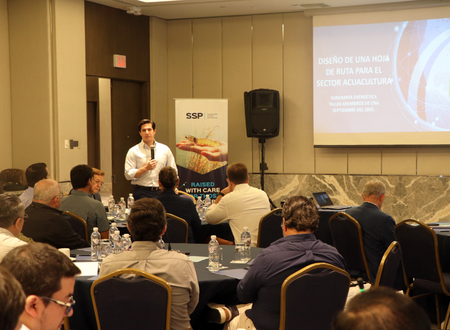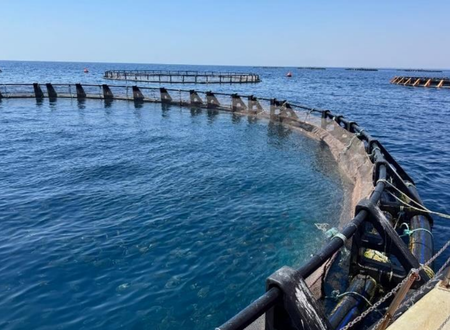Skretting unveils next generation of global shrimp feeds
The company presented new versions of shrimp feeds featuring PhytoComplexes during Aqua Expo 2025.
Genetic project to improve resilience of UK’s native oysters
The University of Aberdeen and NativeAqua received £14,300 to use genetic analysis to help with the restoration of wild stocks and support sustainable aquaculture.
Canadian Aquaculture Industry Alliance announces new executive committee
The Alliance has elected its 2025–2026 Executive Committee, led by Joel Richardson, promoting sustainable aquaculture in Canada.
ASC expands certification program to include Atlantic cod
The ASC now certifies farmed Atlantic cod under its updated Salmon and Cod Standard, promoting sustainable and responsible cod aquaculture.
Taiwanese company becomes the first farm to join the ASC Improver Program
Tuna Rich Trade & Fishery Co., Ltd., a leading cobia and dragon-tiger grouper farm in Kaohsiung, has become the first in Taiwan to join the ASC Improver Program.
MSD Animal Health presents vaccine research in Brazilian tilapia
The company highlighted Brazil’s global leadership in tilapia health at LACQUA 2025, with studies showing AQUAVAC® vaccines greatly boost survival and disease resistance.
INVE introduces hatchery feeds and monitoring tools in Aquaculture Europe
The new products are designed to enhance performance, consistency, and profitability in European marine fish hatcheries.
Texas A&M launches center for marine aquaculture
The goal of the Center for Marine Aquaculture is to promote sustainable marine food production and strengthen coastal innovation.
Aquaticode names new strategic advisor
The company has appointed Trond Williksen as strategic advisor to drive the adoption of its AI phenotyping technology.
Study shows escaped Atlantic salmon have low reproductive success in southern Chile
A SalmonChile study found escaped Atlantic salmon rarely reproduce in southern Chile, while coho, rainbow trout, and chinook salmon show higher reproduction rates.
Onda expands Tenacibaculum study models
Two new disease study models have been added to its suite of models: Tenacibaculum dicentrarchi and Tenacibaculum finnmarkense.

Ecuador´s shrimp sector launches a collaborative platform to drive energy transition and security
India will host World Seafood Congress 2026 in Chennai
F3 launches global challenge to drive farm-level feed innovation
World Aquaculture India 2025 welcomes aquaculture leader as a plenary speaker

Aquaculture in Tunisia: Growth, challenges and opportunities
Geopolitical unrest threatens global seafood trade
FAO and Chilean experts present a guide for aquaculture adaptation to climate change
Report charts path for shrimp industry to reduce carbon footprint
Innovations in Hatchery Feeds
Aquaculture hatcheries traditionally rely on rotifer and Artemia as live feeds for the early larval stages. But technology is evolving and has allowed the industrial production of other live feed species and smaller dry feeds.
Hatchery Feed & Management hosted this webinar to discuss some of these recent innovations, with two of the recent disruptors in live feeds, CFEED and Planktonic, and inert feeds with BioMar.
Sponsored by CFEED and Planktonic.
Moderator: George Koumoundouros, Professor of Marine Biology, University of Crete
NP Innovation unveils disk filter panel for land-based farms
NP Innovation’s BioGuard SWIFT is a sustainable, tool-free filtration solution for land-based and RAS farms.
Moleaer launches fully submersible nanobubble system for aquaculture
Freya, a nanobubble system, boosts oxygen efficiency, lowers costs, and enhances fish welfare, offering a versatile solution for aquaculture.
Norwegian company launches AI-powered compliance solution to transform global aquaculture
DNV’s Smarter Compliance automates aquaculture reporting, reducing costs, risks, and workload while boosting control and sustainability.
Vitapro launches new diet for shrimp broodstock
Nicovita Origin Reproductores is a comprehensive solution designed for shrimp prepared for reproduction starting at 20 grams.

